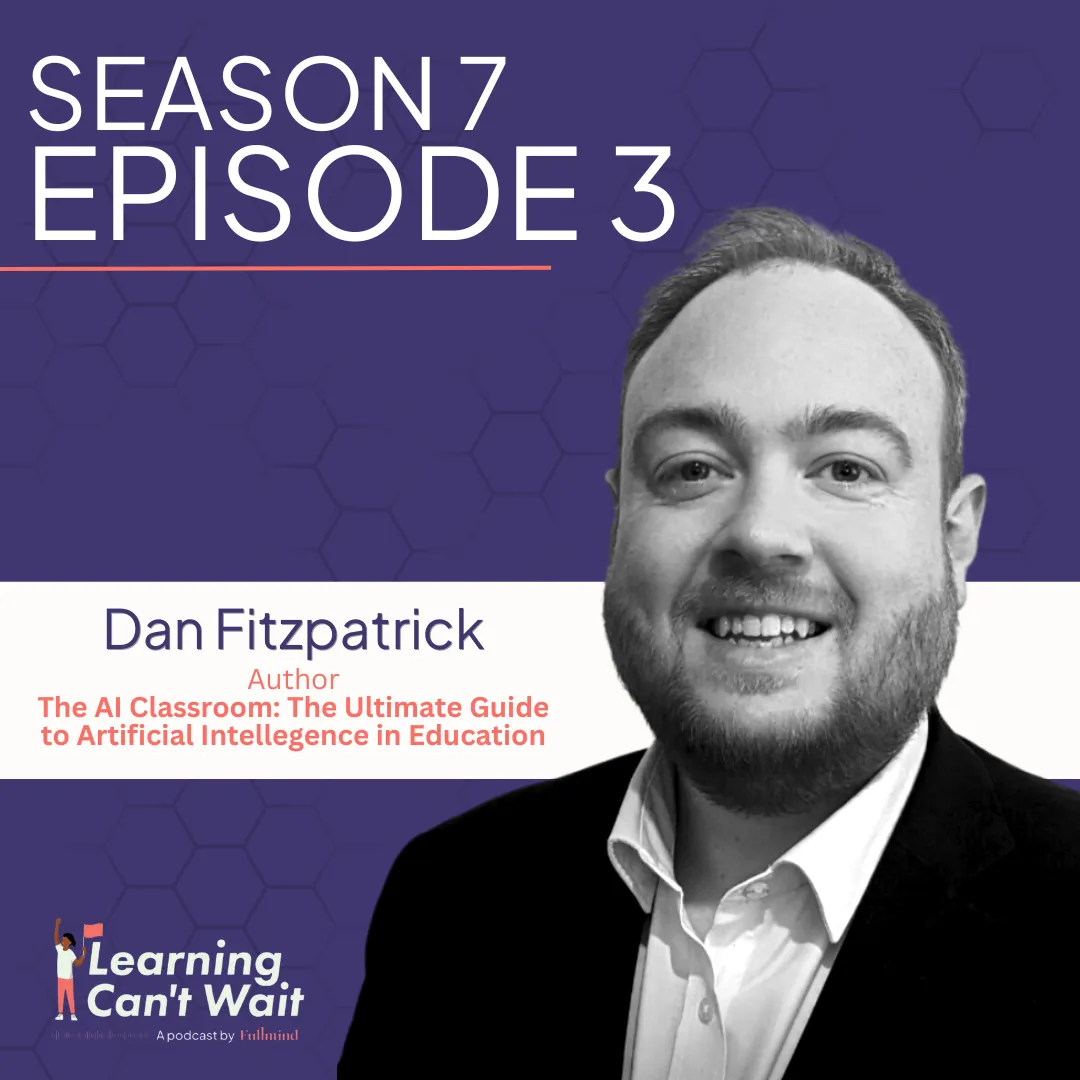For Education Leaders
Get proven strategies and expert analysis from the host of the Learning Can't Wait podcast, delivered straight to your inbox.
High-Dosage Tutoring
Accelerate Growth with Proven Tutoring
- Frequent, data-driven personalized sessions
- Certified, virtual, budget-friendly
- Boosts grades & closes gaps fast
Private Homeschool Tutor: The Complete Guide for Parents

Homeschooling offers freedom to tailor education to your child's needs and interests. However, even dedicated parent-educators may encounter challenges. Advanced algebra may not be your strength, your high schooler needs specialized SAT preparation, or balancing instruction across multiple children strains your time too thin.
A private tutor for homeschooling isn't meant to replace your role as the primary educator but to supplement and enhance your efforts. Tutors fill knowledge gaps, provide specialized instruction in challenging subjects, or offer support for children with learning differences. They serve as partners in your educational team, bringing expertise when needed.
This guide explores the benefits of tutoring, types of tutors, how to find and select the right match, integration strategies, cost considerations, and potential challenges. Whether you're starting your homeschooling journey or enhancing an established program, understanding your options can optimize your child's learning experience.
Benefits: How a Homeschool Tutor Can Enhance Learning
Adding a tutor to your homeschool program can greatly enhance your child's education:
- Targeted Academic Support: Address specific areas where your child struggles, preventing small gaps from becoming significant obstacles.
- Subject Expertise: Access deep knowledge in subjects beyond your comfort zone, from advanced physics to conversational Spanish.
- Personalized Attention: Provide individual focus tailored to your child's learning style, pace, and needs.
- Enrichment and Advanced Learning: Challenge gifted students with accelerated content or explore specialized interests like robotics or creative writing.
- Support for Special Educational Needs (SEN): Incorporate tailored strategies for children with dyslexia, ADHD, autism spectrum disorders, or other learning differences.
- Developing Study Skills: Build critical academic abilities like note-taking, research methods, and test preparation that benefit students in all subjects.
- Reducing Parental Stress: Alleviate the pressure to master every subject, especially as coursework advances into high school and beyond.
- Providing Objective Feedback: Gain a new perspective on your child's academic strengths and growth areas from an education professional.
- Preparation for Standardized Tests or College: Offer guidance for SAT/ACT preparation, college applications, or academic transitions.
Many homeschooling families find that tutoring support creates a more balanced educational approach. It combines the flexibility and personalization of homeschooling with focused professional instruction.
Types of Homeschool Tutors: Finding the Right Match
Understanding the different types of tutors helps you choose the best option for your family's needs, goals, and budget.
In-Person vs. Virtual Tutors
In-person tutoring offers benefits such as direct interaction, immediate observation of body language and engagement, and hands-on learning. Many families appreciate the personal connection that forms when someone works directly with their child at the kitchen table or in a library. Tutors can incorporate manipulatives, physical models, or tactile learning approaches.
Conversely, virtual homeschool tutors offer unique advantages in today's connected world. Online tutoring eliminates geographical constraints, expanding access to subject specialists regardless of location. Many families find the convenience, scheduling flexibility, and lower costs of virtual options outweigh the benefits of in-person instruction. Modern platforms offer interactive whiteboards, screen sharing, and collaborative document editing for engaging, effective learning. The advantages of virtual learning extend beyond convenience, especially for tech-savvy students.
Subject Specialist vs. General Academic Support
Some families seek tutoring for a challenging subject. For instance, your 10th grader might excel in humanities but need support in chemistry, or your musically gifted child might benefit from advanced instruction. Subject-specific tutors bring expertise in their discipline and can efficiently address needs.
Alternatively, a general academic tutor offers broader support across multiple subjects or focuses on foundational skills like reading comprehension, writing, or study techniques. This approach suits younger students, those needing organization and executive function support, or families seeking consistent mentorship rather than subject-specific expertise. General tutors help with homework oversight, learning strategies, and building academic confidence.
Qualification Levels: Certified Teacher vs. Subject Expert vs. College Student
Certified Teachers bring training in pedagogy, curriculum development, assessment methods, and classroom management. They understand different learning styles and have experience differentiating instruction for diverse needs. They understand state standards and educational benchmarks, which is valuable for aligning with traditional grade-level expectations. The value of certified educators includes identifying learning gaps and implementing research-based instructional approaches.
Subject Matter Experts have deep knowledge in specific fields but may lack formal teaching credentials. A professional chemist, published novelist, or software engineer might offer advanced instruction in their specialty despite lacking classroom experience. These experts excel at providing real-world context and specialized knowledge, especially for advanced students pursuing depth in a subject.
College Students or Recent Graduates make enthusiastic, relatable tutors for foundational subjects or homework help. They have recent experience with standardized tests, their knowledge is current, and they typically charge lower rates. While teaching experience varies, these tutors can be excellent options for routine academic support or short-term projects, especially for older students who respond well to peer mentoring.
Finding Your Ideal Homeschool Tutor: A Detailed Approach
Finding the right tutor requires a systematic approach to match your child's needs, learning style, and your family's limitations.
1. Define Your Needs and Goals
Clearly identify your needs. Do you need remedial support for learning gaps, or enrichment for an advanced student? Do you need regular weekly sessions or occasional help with specific projects? Consider subject areas, frequency, budget, and experience with particular challenges of teaching approaches. Do you prefer in-person or virtual sessions? The more specifically you define your requirements, the more effectively you can find suitable candidates.
2. Where to Search
Multiple sources can yield suitable homeschool tutor candidates:
- Personal Referrals: Ask for recommendations from homeschooling families, co-op members, or local groups based on their experiences.
- Local Colleges/Universities: Contact education departments or career centers about majors seeking tutoring experience or post on campus job boards.
- Online Tutoring Platforms: Numerous websites connect families with vetted tutors. You can filter by subject, availability, and rates.
- Tutoring Agencies: Local agencies manage screening and matching, often at high rates.
- Homeschooling Groups/Forums: Online communities share tutor recommendations and maintain resource lists.
- Specialized Providers: Some organizations focus on providing highly qualified educators with specific credentials or expertise in areas like special education or advanced academics.
3. The Vetting Process
Initial Screening: Review resumes, profiles, or applications for relevant experience with homeschooled students. Look for subject knowledge, teaching experience, and familiarity with different learning styles. Note their communication skills and professionalism.
The Interview: Prepare questions to assess alignment with your family's needs and values:
- What experience do you have with homeschooled students?
- Describe your teaching approach for a struggling student with [specific concept].
- How do you keep students interested and motivated?
- What methods do you use to monitor progress?
- How do you tailor instruction for different learning styles?
- What is your policy on missed sessions or rescheduling?
- Consider involving your child in this conversation, particularly for older students.
Checking References: Contact previous clients or employers with specific questions about reliability, effectiveness, communication style, and ability to connect with students. Ask for examples of how the tutor handled challenges or adapted to student needs.
Background Checks: Safety verification is essential for in-person tutors working one-on-one with your child. Tutoring agencies typically conduct screenings, but for independent ones, request a recent background check or use a third-party service. Most qualified professionals will understand this measure.
4. Trial Session (Optional but Advised)
Arrange a paid trial session to observe the tutor's teaching style and assess compatibility with your child before committing to a regular schedule. After the session, debrief separately with your child and the tutor. Consider whether the interaction felt constructive, positive, and aligned with your educational approach.
Integrating the Tutor into Your Homeschool Routine
Once you've selected a tutor, careful integration ensures maximum benefit from the relationship.
- Clarifying Roles and Expectations: Define what you expect from the tutor and what remains your responsibility. Will they assign homework? Grade assignments? Develop a curriculum? Clarify how their work complements your role as the primary educator. Determine their autonomy and where you want to be involved.
- Communication Strategy: Establish regular check-ins to discuss progress, challenges, and upcoming topics. This can be a brief chat after sessions, weekly emails, or a shared digital journal. Decide how the tutor will document what was covered and any concerns. Ensure your child can provide feedback about what is effective and what isn't.
- Curriculum Coordination: Provide your tutor with your overall curriculum approach, materials you're using, and specific learning objectives. Discuss how their sessions should complement your existing program—whether reinforcing concepts, offering advanced exploration, or teaching material independently.
- Scheduling and Logistics: Create consistent appointment times for everyone. Establish clear cancellation policies, including notice requirements and make-up sessions. For virtual tutoring, ensure technical requirements are understood and tested before sessions.
- Creating a Productive Learning Environment: Whether in-person or online, ensure your child has a quiet, distraction-free space with necessary supplies. Consider if you should be present during sessions or if they work better independently. Some families find younger children benefit from parental presence while teens prefer solitude.
Understanding Private Homeschool Tutor
Cost is an important consideration for families. Several factors influence tutoring rates:
- Tutor's qualifications and experience: Certified teachers and specialists with advanced degrees charge more than college students or less experienced tutors.
- Subjects: Advanced or specialized subjects (calculus, physics, foreign languages) generally command higher rates than basic topics.
- Location: Geographic cost-of-living differences affect in-person tutoring rates.
- Session length and frequency: Some tutors offer package discounts for longer or more frequent commitments.
- In-person vs. virtual: Online tutoring costs less due to lower travel time and expenses for the tutor.
- Agency fees vs. independent tutors: Working through an agency typically costs more but provides additional vetting and replacement assurances.
- Typical Rate Ranges: Rates vary from $25-$100+ per hour depending on the factors above. College students charge $25-40, while certified teachers or subject specialists range from $45-75+. Tutors with exceptional credentials or specialized expertise charge $100+ hourly.
- Payment Structures: Most tutors charge by the hour, but some offer package deals (e.g., 10 sessions at a discounted rate) or monthly retainers for ongoing support. Before starting, clarify payment timing, accepted methods, and canceled session policies. Consider a written agreement to avoid misunderstandings.
Navigating Potential Challenges and How to Tackle Them
Challenges arise, even with careful selection. Proactive strategies can help address common issues:
- Personality Mismatch: If your child and tutor don't click, address this early. A direct conversation about adjusting teaching approaches can help, but seek a different one if necessary. The relationship between student and instructor significantly impacts learning effectiveness.
- Scheduling Conflicts: Establish clear policies on cancellations and make-up sessions. Use shared digital calendars and set reminders. Build in flexibility, and periodically reassess the schedule.
- Differing Expectations: If misalignments emerge, revisit your initial role clarification. The tutor might be covering material too quickly or slowly, or assignment expectations might differ. Regular check-ins prevent misunderstandings from becoming significant problems.
- Cost Concerns: If financial constraints arise, discuss options like reducing session frequency, shortening sessions, or exploring group tutoring with other homeschooling families. Some tutors offer sliding scales or alternative payment arrangements.
- Student Resistance: If your child resists tutoring, investigate underlying causes. Are the sessions too challenging or not challenging enough? Does your child feel the tutor doesn't understand them? Adjusting the approach, clarifying the purpose, or giving your child more control can improve engagement.
- Measuring Progress: Without traditional grades, measuring effectiveness can be challenging. Work with your tutor to establish clear goals and benchmarks. Use periodic assessments, work samples, or progress journals to document growth.
The Rise of Virtual Tutoring: Quality and Flexibility
Online tutoring for homeschoolers has evolved from basic video calls to sophisticated interactive learning environments. Today's platforms offer shared whiteboards, document collaboration, screen sharing, and virtual manipulatives for engaging experiences. This evolution, combined with growing acceptance of remote learning after the pandemic, has made virtual tutoring a mainstream option for families worldwide.
The benefits extend beyond convenience. Virtual tutoring eliminates geographical limitations, giving homeschooling families access to subject specialists from anywhere, rural to urban, who are hundreds or thousands of miles away. This global talent pool is valuable for specialized subjects like advanced mathematics, uncommon foreign languages, or niche interests. Additionally, the digital format develops students' technological literacy and online communication skills.
For families seeking robust virtual homeschooling support, options now include providers focused on delivering high-quality instruction through live, certified teachers. Fullmind exemplifies this approach, partnering with schools nationwide to offer customized learning solutions delivered by virtual educators across all subjects. Exploring how such programs utilize certified teachers virtually provides insight into ensuring effective online academic support for homeschoolers.
Conclusion: Supporting Your Homeschool Journey
A private tutor for homeschooling can enhance your educational toolkit by providing targeted expertise, fresh perspectives, and specialized support where your child needs it most. The key is finding the right match—a tutor whose qualifications, teaching style, and personality align with your family's homeschooling philosophy and your child's learning needs.
Tutoring is one of many resources for your homeschooling journey. When selected and integrated, a tutor becomes a valuable partner in your educational team, helping you provide the diverse, comprehensive learning experience that inspired your decision. With this guide, you're equipped to evaluate your needs, explore options, and make informed decisions about incorporating tutoring into your program.
For Education Leaders
Get proven strategies and expert analysis from the host of the Learning Can't Wait podcast, delivered straight to your inbox.
Let’s Work Together
We’ll review your application and get in touch!




.webp)
.webp)



.webp)



.webp)
.webp)


.webp)
.webp)
.webp)











































.webp)



%20.webp)
























.webp)

.webp)


.webp)